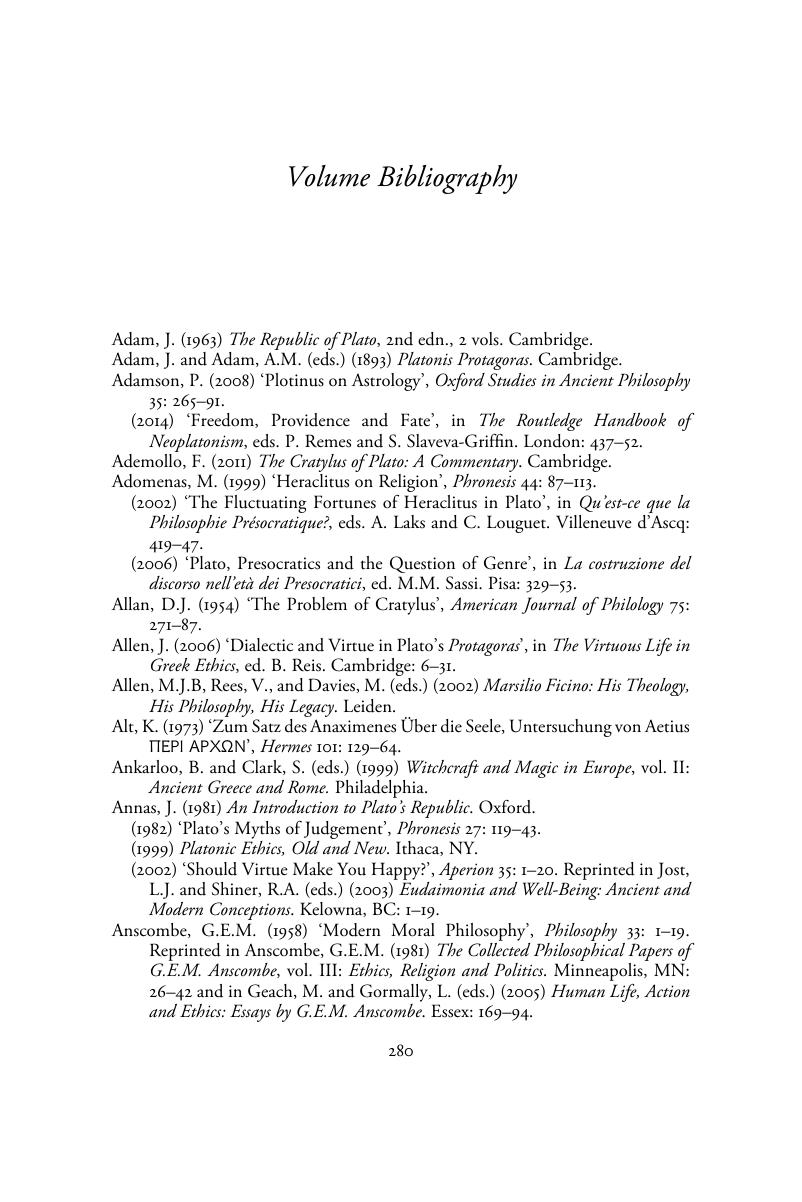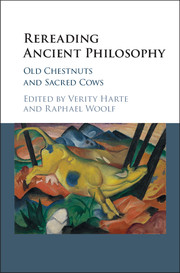Book contents
- Rereading Ancient Philosophy
- Frontispiece
- Rereading Ancient Philosophy
- Copyright page
- Dedication
- Contents
- Contributors
- Preface
- Introduction
- Chapter 1 On Second Thoughts, Does Nature Like to Hide?
- Chapter 2 Deinos (Wicked Good) at Interpretation (Protagoras 334–48)
- Chapter 3 The Unhappiness of the Great King (Gorgias 461–81)
- Chapter 4 Love and Knowledge
- Chapter 5 Socrates, Eros and Magic
- Chapter 6 The Psychological Import of the First Wave in Republic 5
- Chapter 7 Knowing and Believing in Republic 5
- Chapter 8 Knowledge, True Belief and Poetry in Republic 10
- Chapter 9 Another Two Cratyluses Problem
- Chapter 10 Is Aristotle a Virtue Ethicist?
- Chapter 11 Soul as Harmony in Phaedo 85e–86d and Stoic Pneumatic Theory
- Chapter 12 A Neglected Strategy of the Aristotelian Alexander on Necessity and Responsibility
- Chapter 13 ‘Present without Being Present’
- Mary Margaret McCabe Bibliography 1978–2016
- Volume Bibliography
- Subject Index
- Index Locorum
- References
Volume Bibliography
Published online by Cambridge University Press: 08 December 2017
- Rereading Ancient Philosophy
- Frontispiece
- Rereading Ancient Philosophy
- Copyright page
- Dedication
- Contents
- Contributors
- Preface
- Introduction
- Chapter 1 On Second Thoughts, Does Nature Like to Hide?
- Chapter 2 Deinos (Wicked Good) at Interpretation (Protagoras 334–48)
- Chapter 3 The Unhappiness of the Great King (Gorgias 461–81)
- Chapter 4 Love and Knowledge
- Chapter 5 Socrates, Eros and Magic
- Chapter 6 The Psychological Import of the First Wave in Republic 5
- Chapter 7 Knowing and Believing in Republic 5
- Chapter 8 Knowledge, True Belief and Poetry in Republic 10
- Chapter 9 Another Two Cratyluses Problem
- Chapter 10 Is Aristotle a Virtue Ethicist?
- Chapter 11 Soul as Harmony in Phaedo 85e–86d and Stoic Pneumatic Theory
- Chapter 12 A Neglected Strategy of the Aristotelian Alexander on Necessity and Responsibility
- Chapter 13 ‘Present without Being Present’
- Mary Margaret McCabe Bibliography 1978–2016
- Volume Bibliography
- Subject Index
- Index Locorum
- References
Summary

- Type
- Chapter
- Information
- Rereading Ancient PhilosophyOld Chestnuts and Sacred Cows, pp. 280 - 294Publisher: Cambridge University PressPrint publication year: 2017



